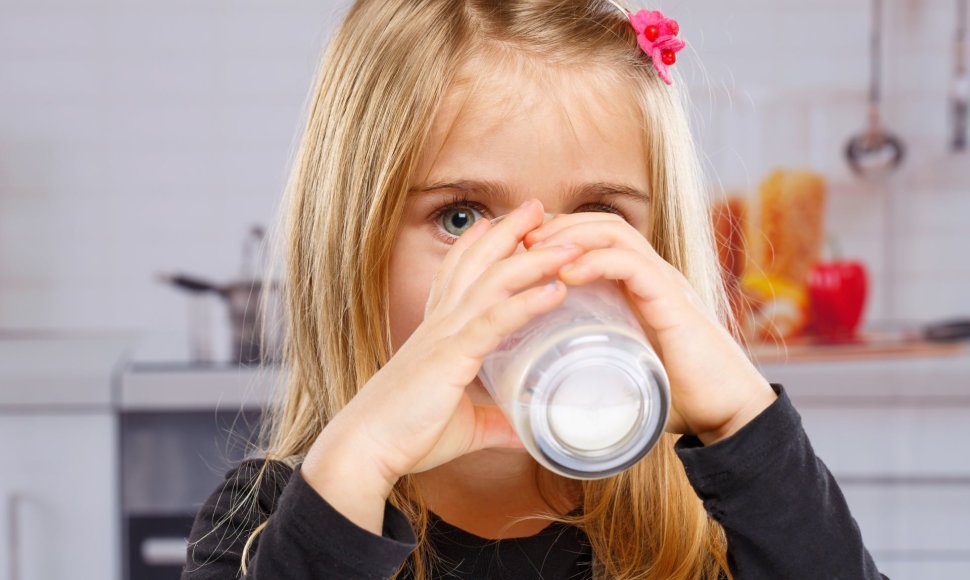It appears that the farmers’ message, which was received by the prime minister, several Seimas committees and the Ministry of Agriculture, reached its goal.
This is because up to now, Lithuanian milk processors struggled to comprehend, why the State Veterinary and Food Service has all of a sudden recently rushed to exclusively test the quality of only milk brought in from Latvia and Estonia. It is tested on a planned basis ever since 2012, up to 2018, the programme Pieno Vartai [Milk Gate] was in operation, based on which fresh milk imported from abroad was tested. However, it has never been the case that the quality of milk from Latvia or Estonia would have been an issue.
Currently, companies are themselves performing lab testing of every milk shipment delivered.
Association features famous politicians’ surnames
According to the Lithuanian milk processors association Pieno Centras head Egidijus Simonis, a real threat emerges that excessive testing could be exploited, barring milk imports from Latvia and Estonia. Also, there are concerns that the import of dairy products from Poland could be obstructed.
“We can only guess at how our neighbours in Poland would react if Lithuania were to bar the way for their dairy products. Most likely, after engaging in a milk war, they would immediately win. This is because the percentage of products purchased from them comprises only 1-2% of our market. Meanwhile, Lithuanian dairy exports to Poland comprise 10-15%,” E. Simonis says.
Furthermore, the Poles also purchase some of our fresh milk, thus in such a milk war, the losing side is clear ahead of time. So why was all of this necessary? The quarantine or the global crisis? According to Lithuanian Milk Producers’ Association head Jonas Vilionis, an increasingly deteriorating situation can be seen in the Lithuanian dairy sector.
By the way, the members of this association are not just smaller farms, but also politicians. For example, it concludes the agricultural company Draugas owned by the family of an influential member of Seimas Ramūnas Karbauskis and a cooperative managed by the family of Andrejus Stančikas, the chairman of the Seimas Rural Affairs Committee, Pieno Gėlė.
Demand to limit imports
In their letter to government institutions, the association’s farmers categorically demanded to freeze the price of wholesale milk purchases at the level seen in March for every individual Lithuanian fresh milk producer. Another demand was to compensate losses to dairy processors only for the part of exported production. The third – to limit the import of Polish dairy produce, which undercuts Lithuanian dairy product prices. Fourth – given a fresh milk surplus, which is a basis for reducing wholesale milk purchase prices, limit fresh milk imports from Latvia and Estonia.
“Economics experts constantly discuss in their overviews, what is happening in this sector. But namely in Lithuania, under cover of the pandemic, the idea has been presented to close borders and freeze prices. Milk wholesale purchase prices were definitely favourable in March because some 70% of milk suppliers were paid 0.34 euro per kilogram of natural indicator fresh milk. Meanwhile, in Poland, the price had already fallen to 0.25-0.26 euro per kilogram of milk. Our farmers decided to hit the brakes,” E. Simonis spoke.
Some 4 thousand tonnes of milk is purchased wholesale in Lithuania every day and over another 1.5 thousand tonnes – around a third – of it are delivered from Latvia and Estonia. These are the production demands – Lithuania-based milk processing companies supply both the domestic market with dairy produce and also export around 60% of their production.
Surprising government actions
“We were overall surprised that in the last days of March, the oversight institutions had aimed at exclusively fresh milk imports, while there is no mention of testing of local milk. After all, extra control measures are undertaken during the emergency quarantine period, when all companies work under not only especially tense economic, but also strict sanitary regime conditions. Anyone from outside immediately presents a risk. Also, why was there a sudden need to take samples if there were no complaints about quality? It could be that politicking milk producers incited this matter,” E. Simonis mused. According to him, the restriction of milk imports would threaten a “milk war” between the Baltic States because it would cause serious consequences for Lithuania’s neighbours, who lack the processing capacities for all the milk available.
Latvian milk cooperatives have already appealed to their minister of agriculture to interfere and prevent the pressure of Lithuanian farmers from limiting free trade between members of the EU.
Meanwhile, it appears that war has already begun against import poultry and eggs, particularly from Poland. As a 15min.lt publication notes: “The director of the State Food and Veterinary Service Darius Remeika promised to test imported poultry and eggs more often. However, he admitted that it is very difficult to uncover poor quality eggs, albeit promising to “look even through a magnifying glass.” This means that Lithuanian services have begun targeted testing of imported products to find ways to bar its entry.












